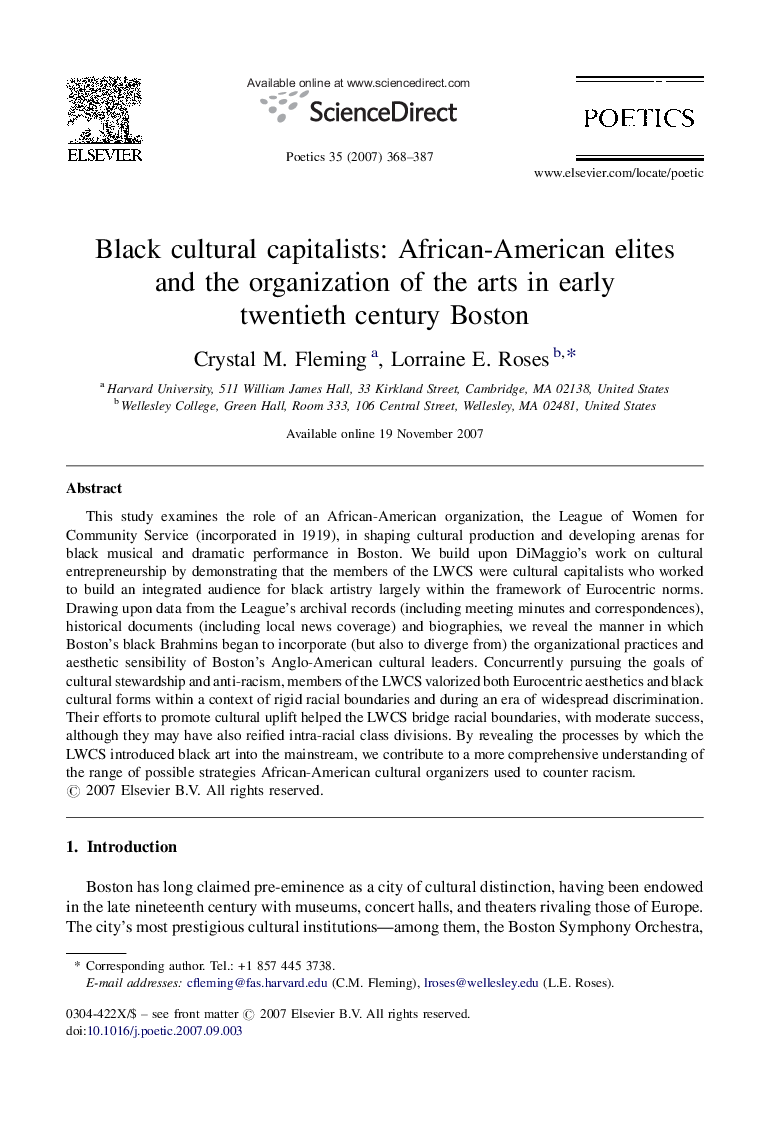| Article ID | Journal | Published Year | Pages | File Type |
|---|---|---|---|---|
| 1128586 | Poetics | 2007 | 20 Pages |
This study examines the role of an African-American organization, the League of Women for Community Service (incorporated in 1919), in shaping cultural production and developing arenas for black musical and dramatic performance in Boston. We build upon DiMaggio's work on cultural entrepreneurship by demonstrating that the members of the LWCS were cultural capitalists who worked to build an integrated audience for black artistry largely within the framework of Eurocentric norms. Drawing upon data from the League's archival records (including meeting minutes and correspondences), historical documents (including local news coverage) and biographies, we reveal the manner in which Boston's black Brahmins began to incorporate (but also to diverge from) the organizational practices and aesthetic sensibility of Boston's Anglo-American cultural leaders. Concurrently pursuing the goals of cultural stewardship and anti-racism, members of the LWCS valorized both Eurocentric aesthetics and black cultural forms within a context of rigid racial boundaries and during an era of widespread discrimination. Their efforts to promote cultural uplift helped the LWCS bridge racial boundaries, with moderate success, although they may have also reified intra-racial class divisions. By revealing the processes by which the LWCS introduced black art into the mainstream, we contribute to a more comprehensive understanding of the range of possible strategies African-American cultural organizers used to counter racism.
